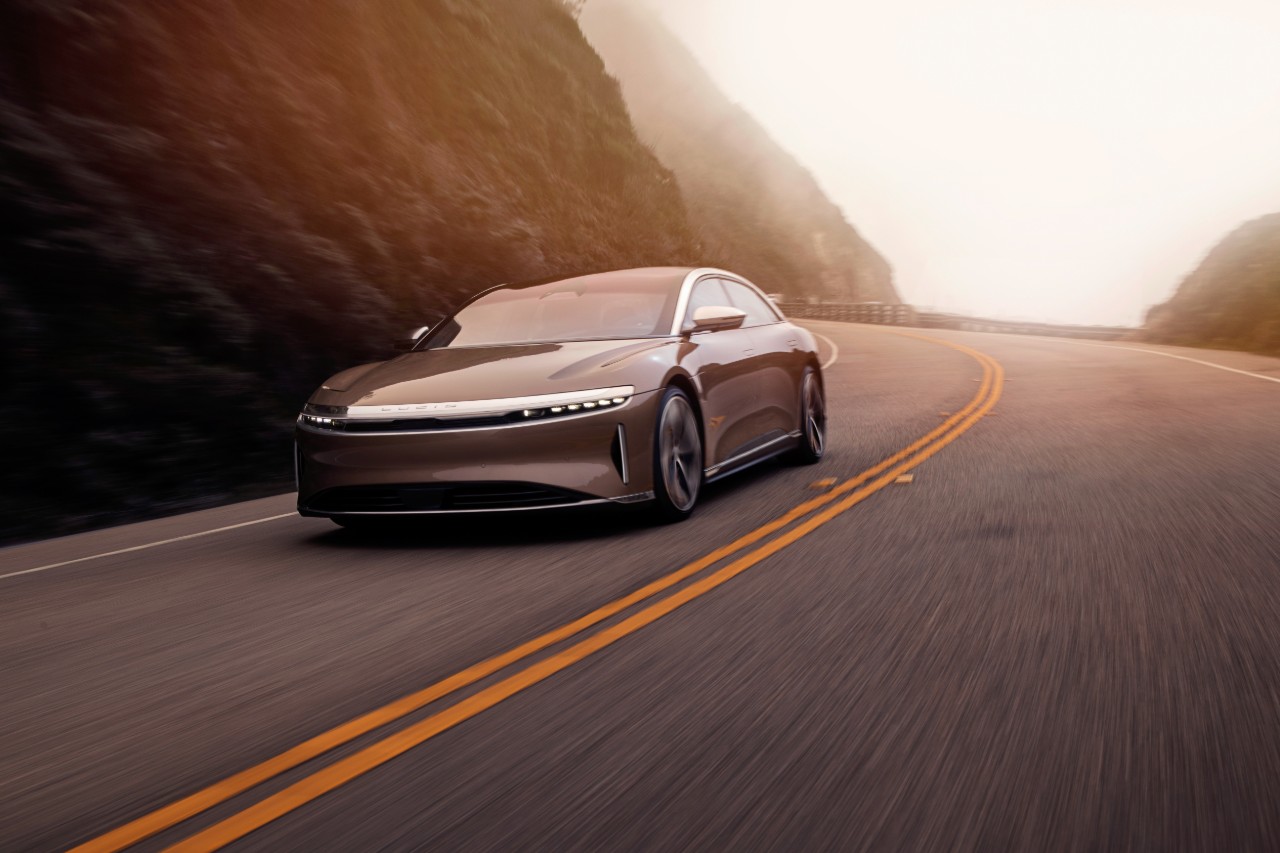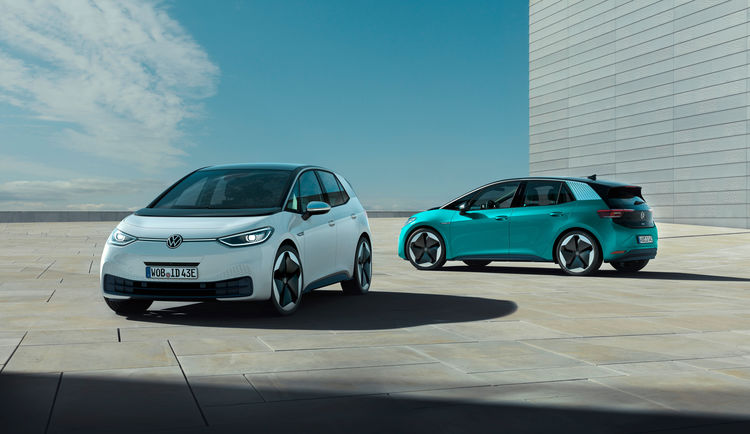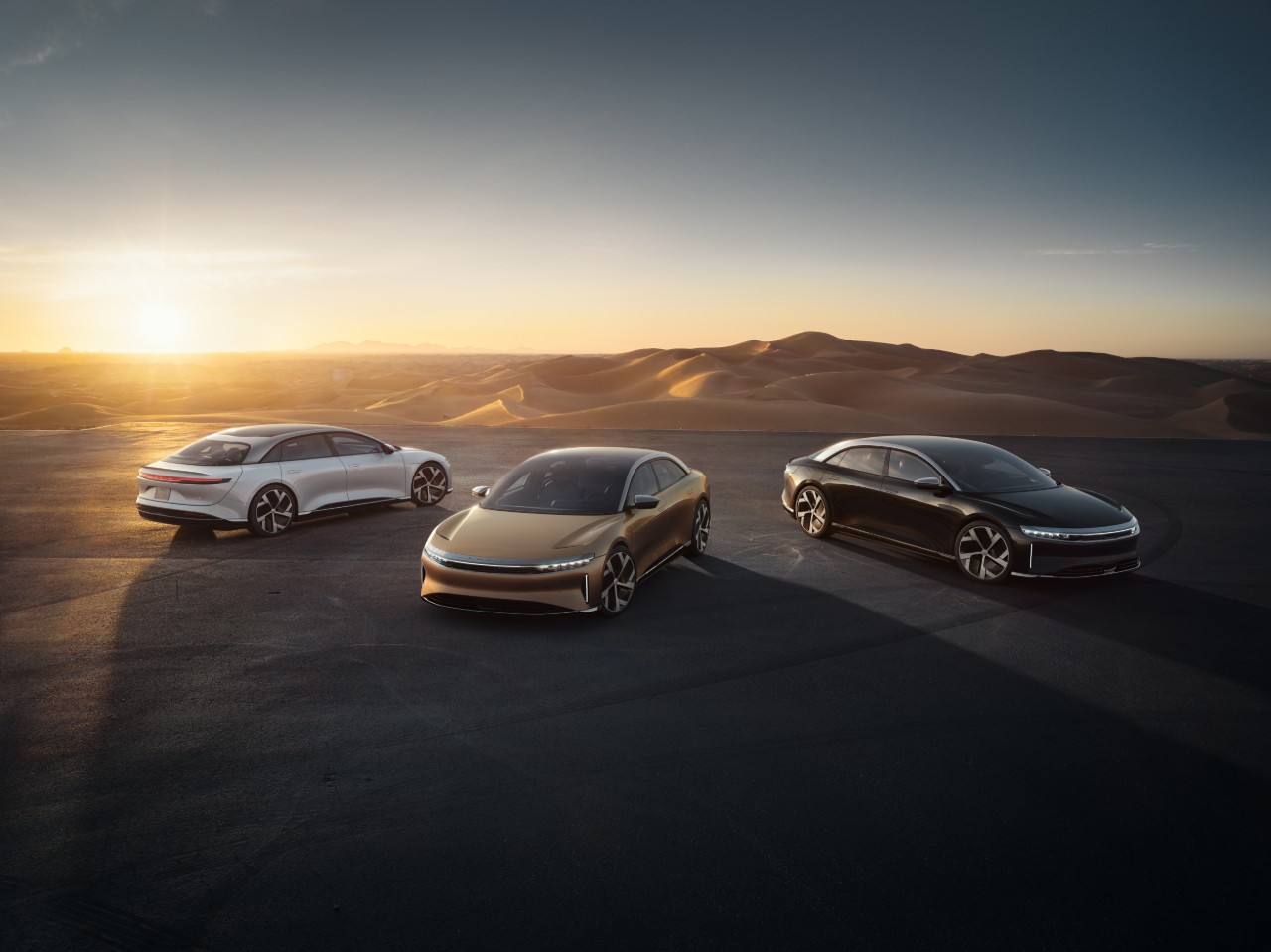Lucid’s unveiling of the Air was impressive; there is no doubt about that. It has all the ingredients for a great electric car: Speed, power, capability, luxuriousness, range, quality engineering, and a team of highly-dedicated engineers who are working to improve upon the already solid foundation that the company has laid down.
Immediately, what thought came to my mind while watching the presentation was, “They’re legit.” It is evident that Lucid was taking things seriously and was not using a bunch of fancy B-roll and suspenseful music to sell a product that wasn’t in production. No way. Lucid was dead serious about their car, and they recognize that until production begins and the Air starts being delivered to consumers, they haven’t accomplished a damn thing.
That’s a refreshing mindset in today’s day and age. To be honest, I understand a lot of companies are coming out and saying that they’re the next big thing. They’re the next Tesla, and their EV platform is the one that is going to solve all the problems.

These claims have come up empty time and time again. But Lucid definitely took a different approach. While describing and laying out the Air piece by piece for viewers to gauge thoughts on, the company’s CEO Peter Rawlinson was vocally supportive of Lucid’s efforts this far. However, he knows that the hard work is far from over. Just ask Elon Musk, who called Model 3 manufacturing “production hell” a few years ago.
That is what is super respectable about Lucid. They know that production is the real test, and it is one that never ends. After manufacturing begins and cars are delivered, there will be room for celebration, and there will be time to look at the accomplishments over the last five years. Until then, it’s hard work and grinding it out.
But it begs the question, can Lucid catch up to Tesla? Is this possible?
This is a preview from our weekly newsletter. Each week I go ‘Beyond the News’ and handcraft a special edition that includes my thoughts on the biggest stories, why it matters, and how it could impact the future.
Tesla has a considerably-sized head start by a few years over Lucid, and Tesla has already been given the nod that it has a multi-year advantage over some of the biggest companies in the world. Volkswagen and Audi have both admitted it in the past, but their focus has not primarily been on EVs. Gas cars have filled the minds of VW CEOs for years.
Ever since VW has started manufacturing the ID.3 and ID.4, they have been plagued with a variety of issues that have been software related. Volkswagen has fantastic engineering, and the problems they have faced have been hindering the company’s ability to release a quality EV promptly.
Now, VW has an extensive and successful history in automotive manufacturing. While they have only a few years of experience with developing electric cars, they have still stumbled from time to time, and this is after having so many years of manufacturing experience.

Lucid could experience some of those problems when the production of the Air begins. These issues could be a big problem because they may delay the ultimate delivery date of the Dream Edition, which is Spring 2021.
However, there is a chance that Lucid has worked out all of the kinks. Let’s not forget that Lucid didn’t spring up overnight. It was originally Atieva and was founded in 2007. It seems that a lot of the significant work was done when Peter Rawlinson came on, who worked for Tesla and helped with the Model S.
Rawlinson is a seasoned and experienced veteran, and he has done some awe-inspiring things with Lucid thus far. But is there a chance that Lucid can catch up to Tesla? Sure, but what proof is there that they have a chance?
First off, it is the range. 517 miles of range in the Air, which is impressive considering it is only a 113 kWh battery pack. This is an unheard-of amount of traveling distance in an EV and is considerably more than the Model S’ 402-mile rating. Next, the performance of the Air is critical to the company’s competition with Tesla. The Air is faster than the Model S Performance, but will it be faster than the Plaid Mode Model S? It is unknown, but many seem to think that the newly-engineered flagship sedan from Tesla will be the perfect answer to the Air. Whether that becomes a reality or not remains to be seen.
What is ultimately essential with the development of the Air is we can see that real EV manufacturers are coming to light with competitive products. For so long, legacy automakers have pumped out half-hearted attempts at producing an electric car. They throw a low kWh battery pack into a sedan, give it 100 miles of range and call it “the next big thing.” News flash: it isn’t. If you want to compete in this sector, you have to give consumers a reason to want your vehicle over a Tesla, which is really the benchmark at this point, especially since the Model 3 is widely affordable.
Lucid answered a lot of those questions on Wednesday night. They proved that their car is worth it, and they have plenty of things that could be “better” than what Tesla has to offer. But, it might not be for long, because Elon Musk is the master at taking the wind from a competitor’s sails when a new product is launched.
In reality, anything can happen. But the good news is the fact that Tesla now has a real competitor who seems to be serious about EV manufacturing. There is no goal way down the road for production, and their car works and is tested. With the competition, Tesla could see its best days yet, and Lucid could ultimately be another driving force behind widespread EV adoption.
A big thanks to our long-time supporters and new subscribers! Thank you.
I use this newsletter to share my thoughts on what is going on in the Tesla world. If you want to talk to me directly, you can email me or reach me on Twitter. I don’t bite, be sure to reach out!
Elon Musk
Tesla Supercharger Diner food menu gets a sneak peek as construction closes out
What are you ordering at the Tesla Diner?

The Tesla Supercharger Diner in Los Angeles is nearing completion as construction appears to be winding down significantly. However, the more minor details, such as what the company will serve at its 50s-style diner for food, are starting to be revealed.
Tesla’s Supercharger Diner is set to open soon, seven years after CEO Elon Musk first drafted the idea in a post on X in 2018. Musk has largely come through on most of what he envisioned for the project: the diner, the massive movie screens, and the intended vibe are all present, thanks to the aerial and ground footage shared on social media.
We already know the Diner will be open 24/7, based on decals placed on the front door of the restaurant that were shared earlier this week. We assume that Tesla Optimus will come into play for these long and uninterrupted hours.
The Tesla Diner is basically finished—here’s what it looks like
As far as the food, Tesla does have an email also printed on the front door of the Diner, but we did not receive any response back (yet) about what cuisine it will be offering. We figured it would be nothing fancy and it would be typical diner staples: burgers, fries, wings, milkshakes, etc.
According to pictures taken by @Tesla_lighting_, which were shared by Not a Tesla App, the food will be just that: quick and affordable meals that diners do well. It’s nothing crazy, just typical staples you’d find at any diner, just with a Tesla twist:
Tesla Diner food:
• Burgers
• Fries
• Chicken Wings
• Hot Dogs
• Hand-spun milkshakes
• And more https://t.co/kzFf20YZQq pic.twitter.com/aRv02TzouY— Sawyer Merritt (@SawyerMerritt) July 17, 2025
As the food menu is finalized, we will be sure to share any details Tesla provides, including a full list of what will be served and its prices.
Additionally, the entire property appears to be nearing its final construction stages, and it seems it may even be nearing completion. The movie screens are already up and showing videos of things like SpaceX launches.
There are many cars already using the Superchargers at the restaurant, and employees inside the facility look to be putting the finishing touches on the interior.
🚨 Boots on the ground at the Tesla Diner:
— TESLARATI (@Teslarati) July 17, 2025
It’s almost reminiscent of a Tesla version of a Buc-ee’s, a southern staple convenience store that offers much more than a traditional gas station. Of course, Tesla’s version is futuristic and more catered to the company’s image, but the idea is the same.
It’s a one-stop shop for anything you’d need to recharge as a Tesla owner. Los Angeles building permits have not yet revealed the date for the restaurant’s initial operation, but Tesla may have its eye on a target date that will likely be announced during next week’s Earnings Call.
News
Tesla’s longer Model Y did not scale back requests for this vehicle type from fans
Tesla fans are happy with the new Model Y, but they’re still vocal about the need for something else.

Tesla launched a slightly longer version of the Model Y all-electric crossover in China, and with it being extremely likely that the vehicle will make its way to other markets, including the United States, fans are still looking for something more.
The new Model Y L in China boasts a slightly larger wheelbase than its original version, giving slightly more interior room with a sixth seat, thanks to a third row.
Tesla exec hints at useful and potentially killer Model Y L feature
Tesla has said throughout the past year that it would focus on developing its affordable, compact models, which were set to begin production in the first half of the year. The company has not indicated whether it met that timeline or not, but many are hoping to see unveilings of those designs potentially during the Q3 earnings call.
However, the modifications to the Model Y, which have not yet been officially announced for any markets outside of China, still don’t seem to be what owners and fans are looking forward to. Instead, they are hoping for something larger.
A few months ago, I reported on the overall consensus within the Tesla community that the company needs a full-size SUV, minivan, or even a cargo van that would be ideal for camping or business use.
Tesla is missing one type of vehicle in its lineup and fans want it fast
That mentality still seems very present amongst fans and owners, who state that a full-size SUV with enough seating for a larger family, more capability in terms of cargo space for camping or business operation, and something to compete with gas cars like the Chevrolet Tahoe, Ford Expedition, or electric ones like the Volkswagen ID.BUZZ.
We asked the question on X, and Tesla fans were nearly unanimously in support of a larger SUV or minivan-type vehicle for the company’s lineup:
🚨 More and more people are *still* saying that, despite this new, longer Model Y, Tesla still needs a true three-row SUV
Do you agree? https://t.co/QmbRDcCE08 pic.twitter.com/p6m5zB4sDZ
— TESLARATI (@Teslarati) July 16, 2025
Here’s what some of the respondents said:
100% agree, we need a larger vehicle.
Our model Y is quickly getting too small for our family of 5 as the kids grow. A slightly longer Y with an extra seat is nice but it’s not enough if you’re looking to take it on road trips/vacations/ kids sports gear etc.
Unfortunately we…
— Anthony Hunter (@_LiarsDice_) July 17, 2025
Had to buy a Kia Carnival Hybrid because Tesla doesn’t have a true 3 row vehicle with proper space and respectable range. pic.twitter.com/pzwFyHU8Gi
— Neil, like the astronaut (@Neileeyo) July 17, 2025
Agreed! I’m not sure who created this but I liked it enough to save it. pic.twitter.com/Sof5nMehjS
— 🦉Wise Words of Wisdom – Inspirational Quotes (IQ) (@WiseWordsIQ) July 16, 2025
Tesla is certainly aware that many of its owners would like the company to develop something larger that competes with the large SUVs on the market.
However, it has not stated that anything like that is in the current plans for future vehicles, as it has made a concerted effort to develop Robotaxi alongside the affordable, compact models that it claims are in development.
It has already unveiled the Robovan, a people-mover that can seat up to 20 passengers in a lounge-like interior.
The Robovan will be completely driverless, so it’s unlikely we will see it before the release of a fully autonomous Full Self-Driving suite from Tesla.
Energy
Tesla launches first Virtual Power Plant in UK – get paid to use solar
Tesla has launched its first-ever Virtual Power Plant program in the United Kingdom.

Tesla has launched its first-ever Virtual Power Plant program in the United Kingdom. This feature enables users of solar panels and energy storage systems to sell their excess energy back to the grid.
Tesla is utilizing Octopus Energy, a British renewable energy company that operates in multiple markets, including the UK, France, Germany, Italy, Spain, Australia, Japan, New Zealand, and the United States, as the provider for the VPP launch in the region.
The company states that those who enroll in the program can earn up to £300 per month.
Tesla has operated several VPP programs worldwide, most notably in California, Texas, Connecticut, and the U.S. territory of Puerto Rico. This is not the first time Tesla has operated a VPP outside the United States, as there are programs in Australia, Japan, and New Zealand.
This is its first in the UK:
Our first VPP in the UK
You can get paid to share your energy – store excess energy in your Powerwall & sell it back to the grid
You’re making £££ and the community is powered by clean energy
Win-win pic.twitter.com/evhMtJpgy1
— Tesla UK (@tesla_uk) July 17, 2025
Tesla is not the only company that is working with Octopus Energy in the UK for the VPP, as it joins SolarEdge, GivEnergy, and Enphase as other companies that utilize the Octopus platform for their project operations.
It has been six years since Tesla launched its first VPP, as it started its first in Australia back in 2019. In 2024, Tesla paid out over $10 million to those participating in the program.
Participating in the VPP program that Tesla offers not only provides enrolled individuals with the opportunity to earn money, but it also contributes to grid stabilization by supporting local energy grids.
-

 Elon Musk1 day ago
Elon Musk1 day agoWaymo responds to Tesla’s Robotaxi expansion in Austin with bold statement
-

 News1 day ago
News1 day agoTesla exec hints at useful and potentially killer Model Y L feature
-

 Elon Musk2 days ago
Elon Musk2 days agoElon Musk reveals SpaceX’s target for Starship’s 10th launch
-

 Elon Musk3 days ago
Elon Musk3 days agoTesla ups Robotaxi fare price to another comical figure with service area expansion
-

 News1 day ago
News1 day agoTesla’s longer Model Y did not scale back requests for this vehicle type from fans
-

 News1 day ago
News1 day ago“Worthy of respect:” Six-seat Model Y L acknowledged by Tesla China’s biggest rivals
-

 News2 days ago
News2 days agoFirst glimpse of Tesla Model Y with six seats and extended wheelbase
-

 Elon Musk2 days ago
Elon Musk2 days agoElon Musk confirms Tesla is already rolling out a new feature for in-car Grok









